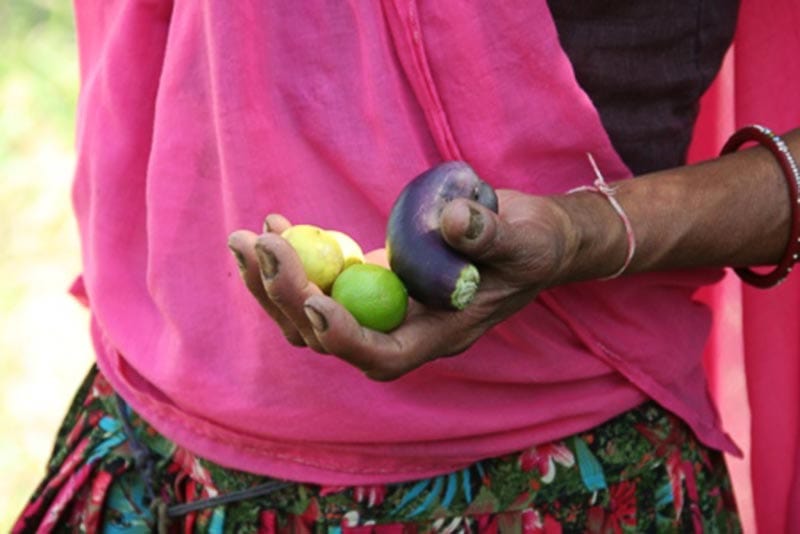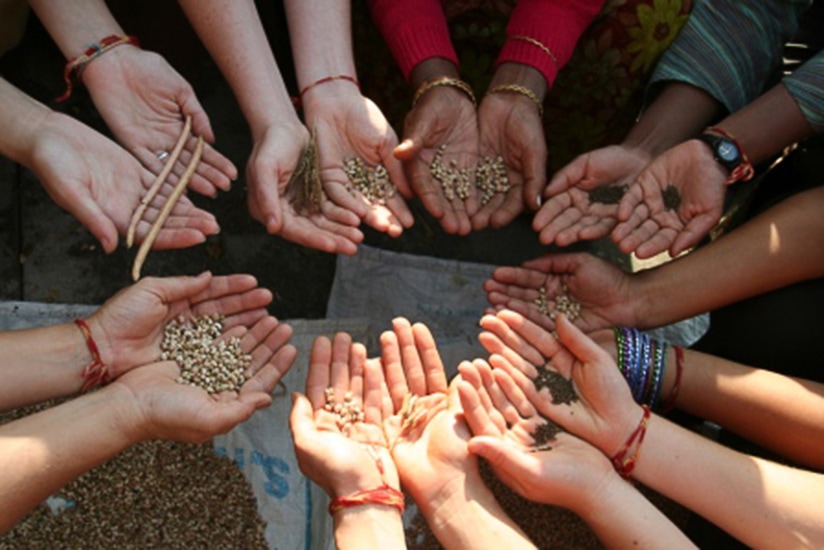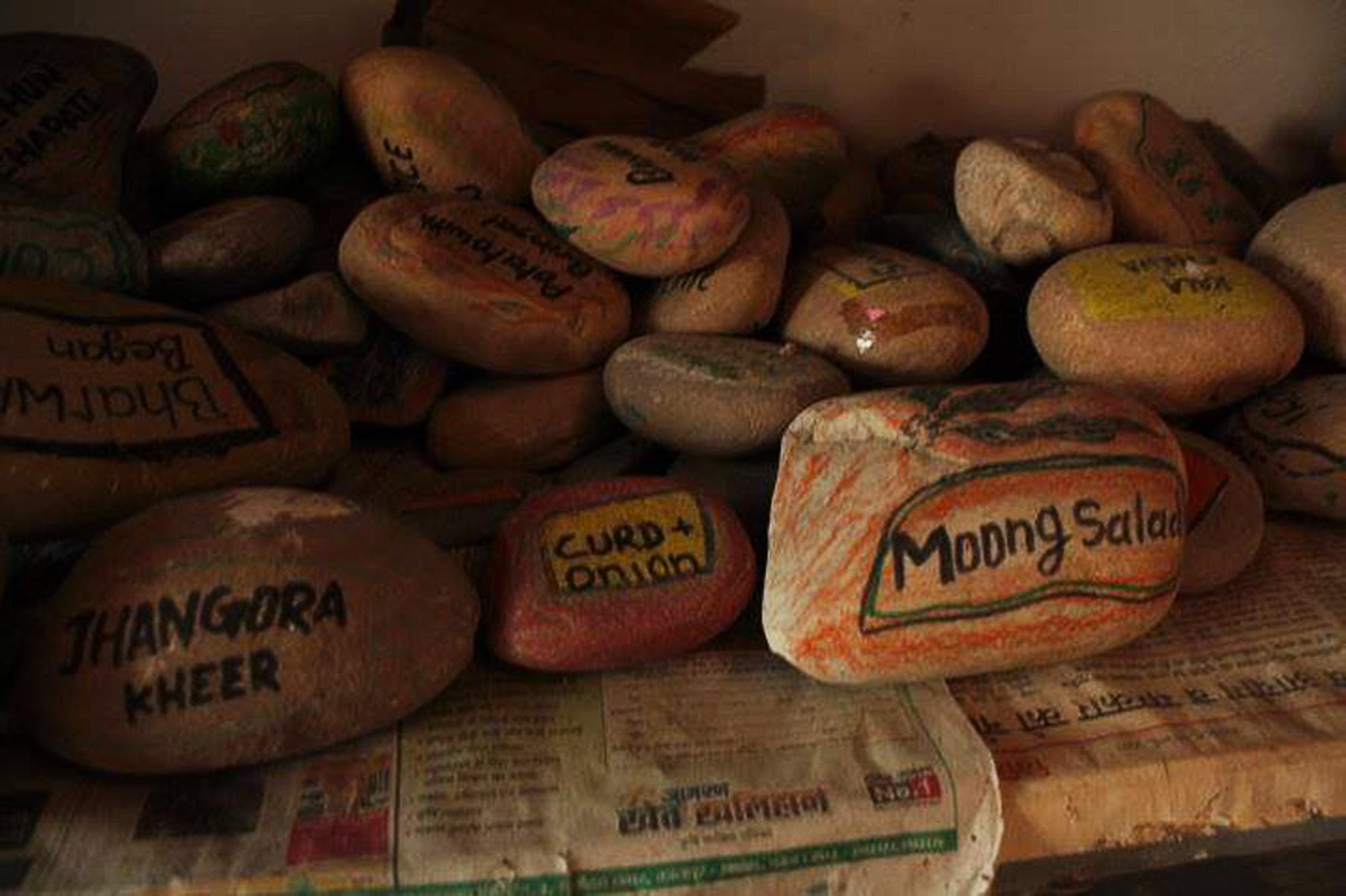On October 20, 2009, 15 WEA delegates and organizers met in New Delhi, India to embark on a 10-day learning exchange that took participants throughout Northern India to listen, learn and forge strategic partnerships with local organizations promoting sustainable agriculture and socially just livelihoods for women farmers. We were keen to partner with Indian women leading the way in sustainable agricultural development using a rights-based approach.
This Learning Exchange brought together a spectrum of women – farmers, activists, researchers, organizers, entrepreneurs and community leaders – to dialogue, exchange ideas, and learn about local solutions that are driving sustainable change in rural communities. We began a dialogue on the rights, roles and priorities of Indian women farmers in sustainable agriculture.
AT A GLANCE
Women are the primary users and custodians of local natural resources, but are seldom given a voice on national and local bodies that decide how these resources are managed.*
In India, more than 84% of rural women are involved in agricultural activities. This is in spite of their often unequal access to land, inputs and information.*
Women are the backbone of the rural economy in developing countries and are responsible for 60-80% of food production. They also tend to be the most knowledgeable about crop varieties.*


THE LEARNING EXCHANGE
Nearly 70% of Indian rural women are employed in agriculture and they are responsible for 60-80 percent of food production.* Only 11% women have access to land holdings.* Women are marginalized and struggle to access training and opportunities for their farming livelihoods.
We saw first-hand the devastating impact industrial agriculture has on the lives of farmers and the land. Since the early 1990s over 100,000 farmers have committed suicide – lives shattered by losing the very land under their feet to toxins and corporate control. Amidst the challenges, we observed countless stories of triumph and courage. From village to village, we saw women upholding the knowledge of traditional agriculture techniques, saving seeds, launching advocacy campaigns, creating cooperatives, and modeling the solutions.
We heard a very clear theme: Women need greater connection with practitioner and information networks, as well as access to marketing support, appropriate technologies, capital, and business development training. This is how they will ensure the health and sustainability of their communities.
This first phase of inquiry for WEA’s Women and Food Initiative led to WEA’s 2011 Capacity Building Training in India focused on climate change and livelihoods of women farmers.
Special thanks to Arshinder Kaur and Arielle Moinester for their leadership in developing this project.






